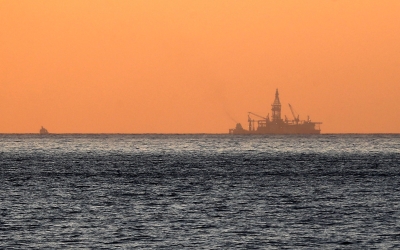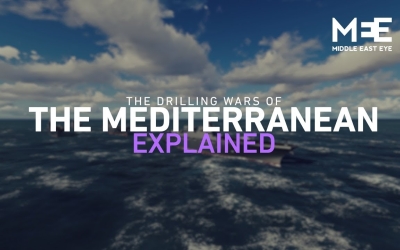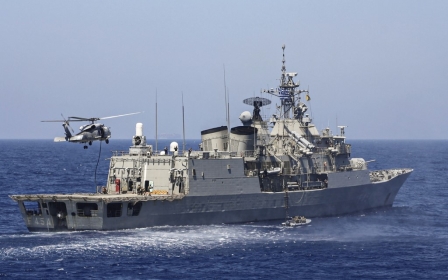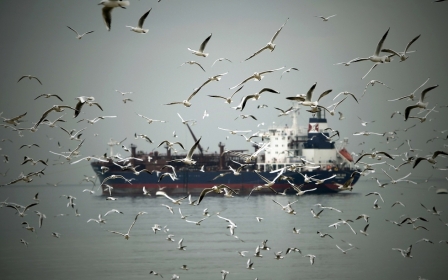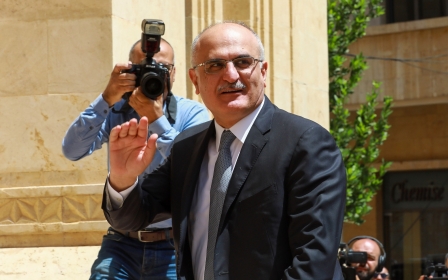Lebanon and Israel hold unprecedented talks on disputed maritime border
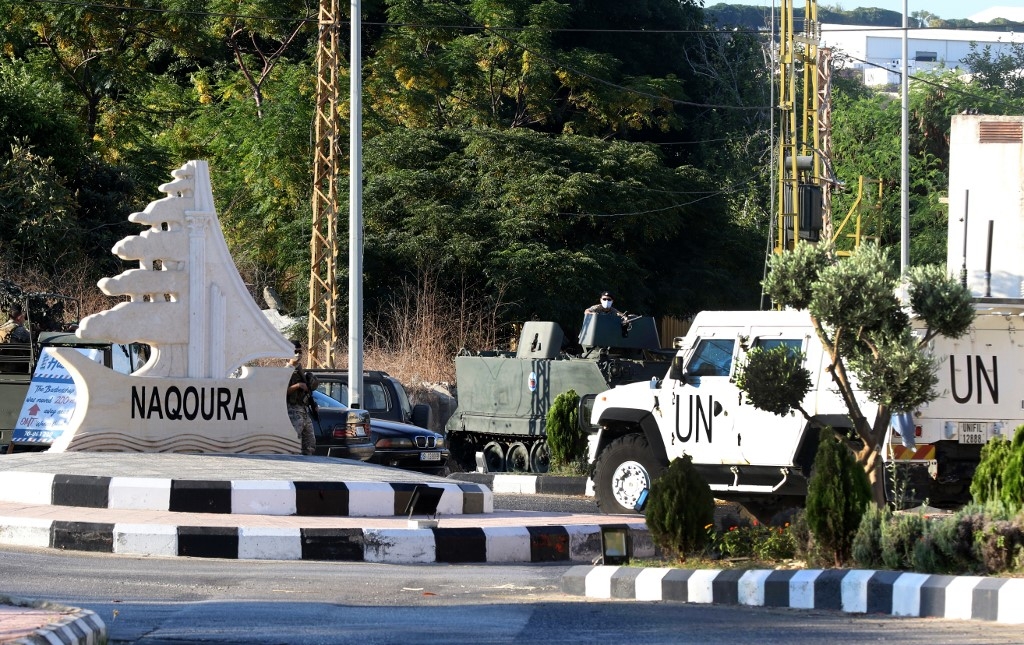
Lebanon and Israel on Wednesday held brief talks on their disputed maritime border in a rare diplomatic interaction between the two Middle Eastern foes.
The meeting was mediated by the United States and hosted by the United Nations, which has monitored the land boundary since Israel withdrew from south Lebanon in 2000 and ended a 22-year occupation.
The talks were held at a base of the UN peacekeeping force, UNIFIL, in the Lebanese border town of Naqoura. The next meeting is due to be held on 28 October.
In a joint statement afterwards, the US and the UN said the talks had been "productive" and that the delegates had "reaffirmed their commitment to continue negotiations later this month".
Israel sent a six-member team to the talks, including the director general of its energy ministry, Prime Minister Benjamin Netanyahu's foreign policy adviser and the head of the army's strategic division, AFP reported.
New MEE newsletter: Jerusalem Dispatch
Sign up to get the latest insights and analysis on Israel-Palestine, alongside Turkey Unpacked and other MEE newsletters
Lebanon's four-member delegation was comprised of two army officers, an official and a maritime border law expert.
US envoy David Schenker facilitated the opening session along with US ambassador to Algeria John Desrocher, who was the mediator.
Head of Lebanon's delegation, Brigadier General Bassam Yassin described Wednesday's meeting as a "first step in the thousand-mile march towards the demarcation" of the sea frontier, according to an army statement.
"We are looking to achieve a pace of negotiations that would allow us to conclude this dossier within reasonable time," he added.
The talks come in the wake of a US-sponsored deal between the United Arab Emirates, Bahrain and Israel to normalise their relations.
But Lebanon insists the talks are focused on the maritime border dispute rather than any political normalisation.
However, Hezbollah and Amal, the two main Shia groups in Lebanon, criticised the presence of civilians in the Lebanese negotiating team.
"This harms Lebanon's position and interests...and amounts to giving in to the Israeli logic that seeks some form of normalisation," they said in a statement late on Tuesday.
'Historic agreement'
Following years of US shuttle diplomacy, Lebanon and Israel this month said they had agreed to begin UN-brokered negotiations, in what Washington hailed as a "historic" agreement.
The negotiations come at a sensitive time as Lebanon, battered by multiple political and economic crises, hopes to continue exploring for oil and gas in a part of the Mediterranean also claimed by Israel.
Lebanon, mired in its worst economic crisis since the 1975-1990 civil war, is looking to settle the maritime border dispute so it can press its offshore quest for oil and gas.
In February 2018, Lebanon signed its first contract for drilling in two blocks in the Mediterranean with a consortium comprising energy giants Total, ENI and Novatek.
Exploration of one of the blocks is more controversial as part of it is located in an 860-square-kilometre area claimed by both Israel and Lebanon.
A senior source at Israel's energy ministry told AFP that the border dispute "can be concluded hopefully in a few months time.
"This is a limited effort to resolve a well-defined, limited problem," he said.
"We have no illusions. Our aim is not to create here some kind of normalisation or peace process."
Reactions to the talks have been mixed in Lebanon, still reeling from a huge August explosion at Beirut port that killed more than 190 people and dealt another crippling blow to Lebanon's economy.
Hezbollah critics on social media have described the talks as contrasting with the powerful Iran-backed movement's anti-Israel stance.
The pro-Hezbollah Al-Akhbar daily on Monday called them "a moment of unprecedented political weakness for Lebanon", arguing that Israel is the real "beneficiary".
Hezbollah is both an armed group that has fought several wars against Israel and a major political force in Lebanon, with seats in parliament.
On Thursday, its parliamentary bloc stressed that demarcating Lebanon's disputed maritime border with Israel does not signify "reconciliation" or "normalisation".
Middle East Eye delivers independent and unrivalled coverage and analysis of the Middle East, North Africa and beyond. To learn more about republishing this content and the associated fees, please fill out this form. More about MEE can be found here.


